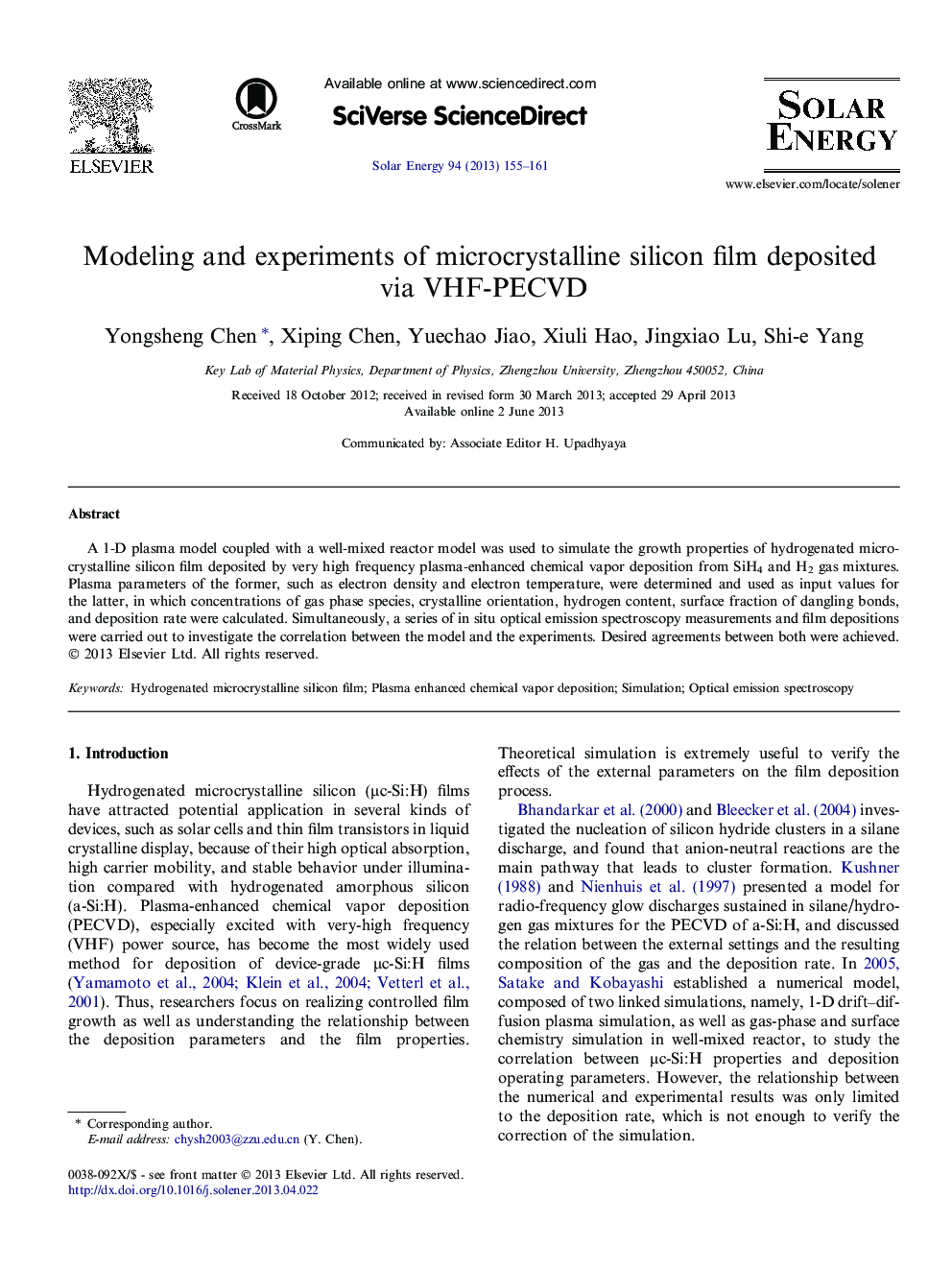| Article ID | Journal | Published Year | Pages | File Type |
|---|---|---|---|---|
| 1550455 | Solar Energy | 2013 | 7 Pages |
Abstract
A 1-D plasma model coupled with a well-mixed reactor model was used to simulate the growth properties of hydrogenated microcrystalline silicon film deposited by very high frequency plasma-enhanced chemical vapor deposition from SiH4 and H2 gas mixtures. Plasma parameters of the former, such as electron density and electron temperature, were determined and used as input values for the latter, in which concentrations of gas phase species, crystalline orientation, hydrogen content, surface fraction of dangling bonds, and deposition rate were calculated. Simultaneously, a series of in situ optical emission spectroscopy measurements and film depositions were carried out to investigate the correlation between the model and the experiments. Desired agreements between both were achieved.
Related Topics
Physical Sciences and Engineering
Energy
Renewable Energy, Sustainability and the Environment
Authors
Yongsheng Chen, Xiping Chen, Yuechao Jiao, Xiuli Hao, Jingxiao Lu, Shi-e Yang,
